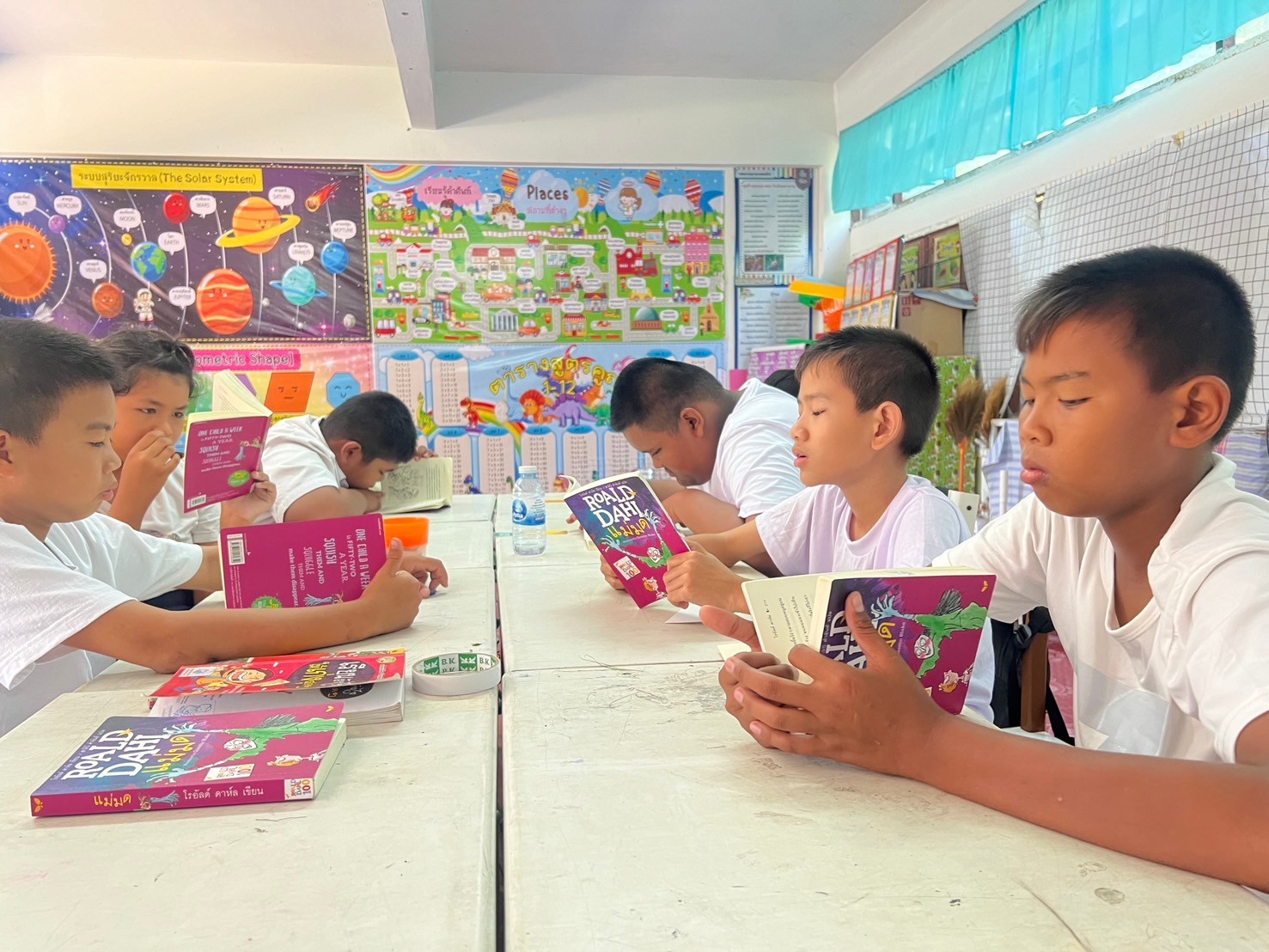Literature Reading in Rural School
In a country where access to literature is a luxury for most children, the Tai Wisdom Association (TWA) is rewriting the narrative of literacy in rural Thailand. Through its innovative reading programme, TWA is providing unprecedented opportunities for young minds to explore the world of books, a resource often overlooked in the nation’s educational system.
The stark reality is that the vast majority of Thai children rarely have access to quality literature. This scarcity of reading materials has long been a contributing factor to low literacy rates and the country’s declining competitiveness on the global stage. However, TWA’s groundbreaking initiative is changing this landscape, one small rural school at a time.
At the heart of TWA’s programme is a simple yet powerful concept: providing individual copies of well-selected young adult literature (YA) to all children in grades 3-6. This approach, unprecedented in Thailand, ensures that every child has daily access to engaging, age-appropriate books. The sight of classrooms filled with children, each holding their own copy of a book, is a revolutionary image in a country where the government has struggled to allocate resources for “reading for pleasure” materials.
But TWA’s involvement doesn’t stop at merely providing books. The organization takes a holistic approach to literacy promotion:
1. Careful Selection: TWA curates a collection of high-quality young adult literature, ensuring that the books are not only engaging but also appropriate for the developmental stages of the readers.
2. Individual Access: Unlike traditional school libraries where books are shared, TWA’s programme provides each child with their own copy, fostering a sense of ownership and personal connection to reading.
3. Rotation System: To maximize the impact of their resources, TWA manages a rotation system, moving books between classes and between schools. This approach ensures a constant flow of fresh reading material, maintaining student interest and exposure to diverse literature.
4. Collaborative Approach: Working in cooperation with small schools in rural areas, TWA tailors its programme to meet the specific needs of each community.
The impact of this programme has been profound. In areas where educators had little faith in children’s capacity for literacy, TWA’s initiative has proven successful in both promoting reading proficiency and cultivating reading habits. This success challenges long-held assumptions about the abilities of rural students and demonstrates the power of providing the right resources and support.
TWA’s approach addresses a critical gap in Thailand’s educational system. While the government has struggled to allocate resources for reading materials, particularly those designed for pleasure reading, TWA has stepped in to fill this void. The organization’s efforts highlight the importance of “reading for pleasure” as a crucial factor in developing strong literacy skills and fostering a lifelong love of learning.
The success of TWA’s programme carries implications far beyond individual classrooms. By improving literacy rates and instilling a love of reading in rural communities, TWA is contributing to the long-term educational and economic prospects of these areas. This grassroots approach to literacy could be a key factor in reversing Thailand’s competitiveness downtrend, proving that investing in children’s access to literature can have far-reaching effects on a nation’s future.
As TWA continues its work, the organization is not just distributing books; it’s distributing opportunities. Each book placed in a child’s hands represents a chance to explore new ideas, develop critical thinking skills, and imagine possibilities beyond their immediate surroundings. In a world where literacy is increasingly crucial for success, TWA’s programme is equipping rural Thai children with the tools they need to compete on a global stage.
In conclusion, TWA’s literacy reading programme stands as a beacon of innovation in Thailand’s educational landscape. By providing unprecedented access to literature and fostering a culture of reading in rural schools, TWA is not only improving literacy rates but also igniting a passion for learning that could transform the future of these communities and, potentially, the nation as a whole. As this programme continues to prove its success, it offers a model for how targeted, well-executed literacy initiatives can overcome systemic challenges and open new worlds of opportunity for children who have long been underserved by traditional educational approaches.
